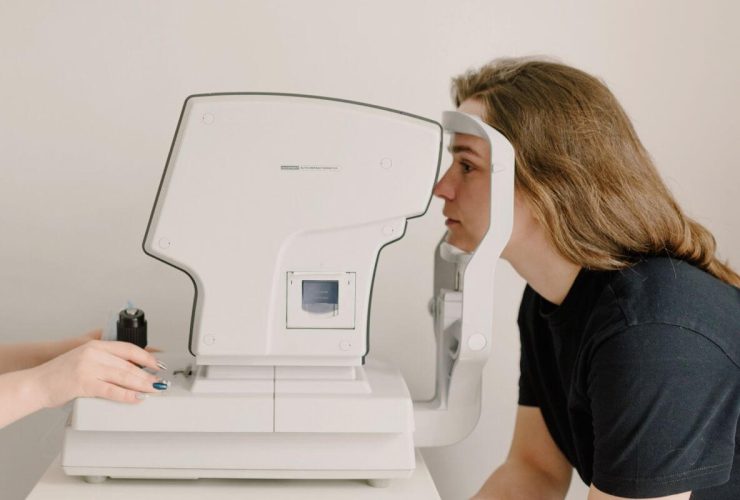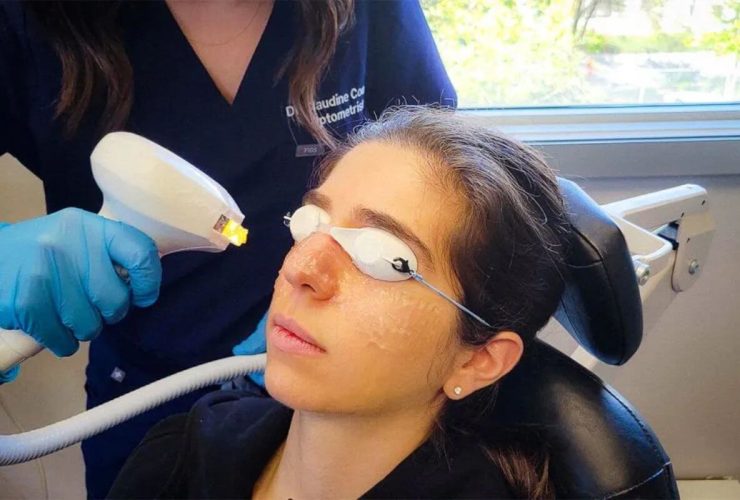Glasses vs Contact Lenses: Which is the Right Choice for Your Lifestyle?
With regards to vision correction, your basic choice is glasses or contact lenses. Both options can provide the potential to improve vision and are key options for obtaining visual clarity. However, glasses or contact lenses have extensive differences in terms of cost, comfort, convenience, etc. Your choice between these options will depend on your lifestyle, comfort, and health requirements. In this blog, we will outline the benefits of glasses and contact lenses and compare glasses vs contact lenses to help make your decision.
What are Glasses?
Glasses are the most common option for vision correction. Glasses consist of two lenses, either plastic or glass, set in a rigid frame. Each lens is made in a specific form and way to minimise refractive errors associated with nearsightedness to farsightedness by differently bending light to focus sharply on the retina. Glasses rest on your nose and sit on your ears; they are simple to use, put on, and take off.
Benefits of Glasses
The significant benefits of glasses include:
- No Special Use Procedure: Glasses are uncomplicated; simply place them on your nose and ears.
- Low Maintenance: Glasses require minimal maintenance and don’t require any special cleaning solution, as in the case of contact lenses.
- Eye Protection: Glasses act as a barrier to dust and debris, and if they are UV protective, they can act as a barrier to harmful rays.
- Choices and Styles: There are so many frame styles and lens options available.
- Reduce the Risk of Infection: Glasses significantly decrease the transmission of infection compared to contact lenses.
- Possibility of Speciality Lenses: Glasses can be equipped with speciality lenses that include UV protective, anti-reflective, blue light filters, and photochromatic lenses.
What are Contact Lenses?
Contact lenses are small, thin lenses that are placed on the surface of your eye (cornea). Like glasses, contact lenses change the way light enters your eye to focus images, which are clear, subsequently focused and cast on the retina, for an unobstructed vision.
Benefits of Contact Lenses
The key benefits of contact lenses include:
- Improved Natural, Wider Vision: Contact lenses rest on the eye surface for wider peripheral vision.
- Better for Sports and Sporty People: For those active in sports, contact lenses cannot fall off your nose like your glasses or break in your backpack.
- No Fogging and No interference from Environmental Conditions: The lenses do not fog up in cold weather, and will not get splattered with rain.
- Available in Several Options: Contact lenses can come as disposable, extended wear, colours, and speciality lenses for unique vision problems.
- Can Wear with Sunglasses: You can wear contact lenses along with any non-prescription sunglasses.
Comparison Glasses vs Contact Lenses: A Detailed Breakdown
There are several practical and personal variables to consider when it comes to comparison glasses vs contact lenses. To assist this decision, a table outlining the difference between glasses and contacts has been provided below:
| Feature | Glasses | Contact Lenses |
| Ease of Use | Very easy to put on and take off. | Depends on the skill and care put in and taken out. |
| Maintenance | Low difficulty – cleaning your lenses is fairly simple. | Higher difficulty – cleaning, disinfecting, and storage required. |
| Comfort | Varies – may cause pressure points. | Generally comfortable, but may cause dryness or irritation. |
| Suitability for Activities | Generally impractical for sports or outdoor use. | Advantageous and realistic for sports and active lifestyles. |
| Risk of Infection | Very low. | Higher risk if hygiene protocols are not followed. |
| Cost | Generally lower annual cost; more eco-friendly long term. | Contact lenses have higher ongoing expenses for lenses and care products. |
Factors to Consider When Choosing Between Lenses and Glasses
There are many different variables in determining if glasses or contacts work best for you. Key factors include:
- People with busy lifestyles or active jobs or hobbies may prefer lenses, while anyone who needs vision correction at any given time may prefer glasses for vision correction.
- Everyone’s comfort level is different, and willingness to handle the care of lenses, as well as the openness to contact their eyes, all influence personal choices. Some people find glasses more comfortable when they can’t simply wear their contacts due to sensitivity-related issues.
- Glasses have a higher initial cost than contacts, which have a continuing cost.
Conclusion
Both options of lenses and glasses offer specific advantages and are a choice based on your lifestyle, comfort, and vision needs. Glasses are easier to handle and also provide some new eye care safety; however, the benefits of contact lenses are more natural vision and more freedom to do what you want to do.
If you are still unsure what might work best for you, Robin Hall Opticians in Worsley will help you determine the best options for you as well as offer professional advice, personal service, and lots of different eyewear and contact lens services to choose from.




